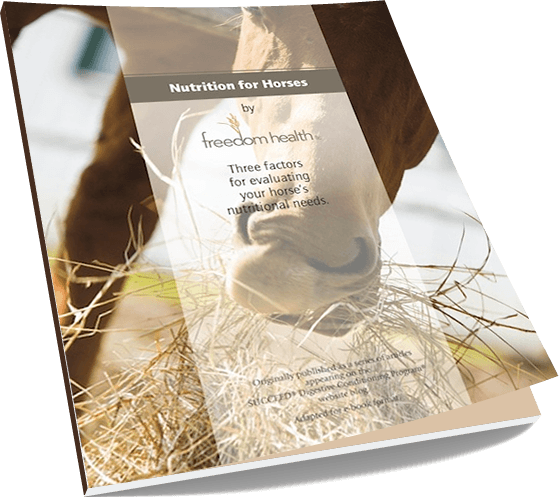One of the digestive health-related issues that can arise in horses is a condition called hindgut acidosis. This generally refers to the lowering of pH (an increase in acidity) in the cecum and/or colon. Hindgut acidosis may have a multitude of effects on horse health, well-being and performance, and may even be the precursor to more serious health risks.
What may be even more stunning is that hindgut acidosis is generally a result of our own actions, particularly how we feed the horse. This is because horses in nature have a lifestyle pattern very different from that of their modern, domesticated counterparts. But the design of the digestive system in a horse reflects the natural lifestyle and feeding patterns, and does not naturally accommodate today’s common feeding and care regimens.
- These differences in feeding and care may lead to digestive imbalance, including hindgut acidosis, which has observable effects on the horse’s appearance, attitude, behavior and performance.
What Leads to Hindgut Acidosis in Horses?
The horse’s relatively small stomach, which secretes acids continuously, is designed to accommodate a small and continuous flow of high fiber material – the result of constant grazing on grass. Without this constant grazing pattern, a horse’s stomach is left empty for long stretches, and the acids unbuffered.
The large cecum (in the hindgut), and the corresponding bacterial environment within, is designed to accommodate this high-fiber diet as well. Because horses (like people) cannot actually digest fiber, bacteria and other microbes in the cecum do the job for them. This process in the cecum and colon – called fermentation – is a significant aspect of normal digestion in a healthy horse.
How we feed horses is typically very different than this model. Horses are commonly fed just two or three times a day and their diets consist of large amounts of processed grain feed. Both of these are completely different from how horses function in nature and can quickly lead to digestive problems in horses.
What is Hindgust Acidosis?
One major consequence of typical feeding practices is a high concentration of sugars and simpler starches in the diet. These simple carbohydrates have significant potential to reach the horse’s hindgut undigested – instead of being absorbed in the small intestine where carbohydrates ought to be.
- When undigested starch and sugars reaches the hindgut, the microbial fermentation process in the cecum produces a higher level of lactic acid. This creates a more acidic environment in the hindgut (lowering the pH), resulting in the state known as hindgut acidosis.
Risks Related to Hindgut Acidosis
Hindgut acidosis is itself a health risk, as the lower pH can kill beneficial bacteria and allow dangerous pathogens to prosper – the beginning of more serious digestive distress.
A high volume of lactic acid in the bloodstream may also reduce the ability of the horse’s muscles to clear lactic acid that builds up during exercise. This may, in turn, lead to a slower recovery from exercise or tying up. Hindgut acidosis is also known to lead to laminitis, colonic ulceration and potentially to colic.
Reduce Your Horse’s Risk for Hindgut Acidosis
To address root causes of digestive imbalance in horses in literal terms means allowing the horse to live as nature intended:
- Plenty of turnout
- Constant access to quality grazing or forage
- Small grain meals fed multiple times a day
But for many horses and their keepers, grain feed, stalls, training and other aspects of the modern husbandry are necessary aspects of equestrian life. The prospect of a lifestyle of grazing in herds is a dream of the past. An alternative approach that is gaining in popularity is taking a natural, nutritional approach to managing the health of the digestive tract, while continuing to maintain the modern lifestyle.

FREE eBook:
Nutrition for Horses
Three factors for evaluating
your horse’s nutritional needs.
